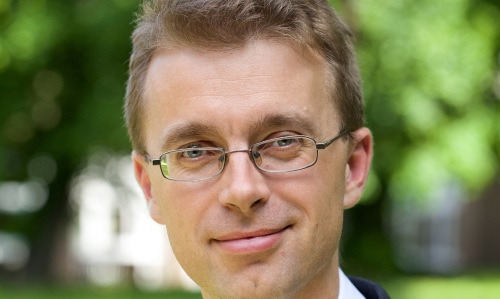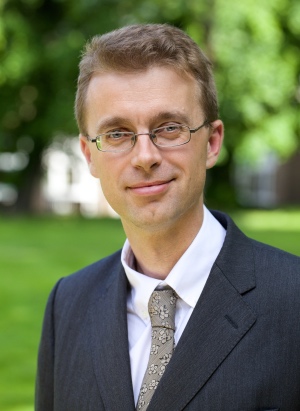
Nick Spencer, director of research at the Theos Christian think tank in the UK, is giving the Richard Johnson lectures in Australia later this month under the title of ‘Where did I come from?: Christianity, secularism and the individual’. He speaks with DAVID ADAMS…
Western societies like Australia and the UK owe a lot more to Christianity than they think or are prepared to recognise.
That’s the message Nick Spencer, research director at the UK-based Christian think tank Theos, is bringing to Australia this month as he delivers the Richard Johnson lectures in Sydney and Melbourne – an initiative of the Centre for Public Christianity – under the theme of ‘Where did I come from?: Christianity, Secularism and the Individual’.

Nick Spencer, research director at UK Christian think tank Theos, who will be delivering the Richard Johnson lectures in Australia later this month.
“The counter case needs to be made that a great deal of the political, social and legal practices and structures and institutions that we take for granted today have their roots in Christendom, in Christian thought.”
– Nick Spencer, director of research at UK-based Christian think tank, Theos
“I’ve written a number of books over the years looking at the way in which Christian thought has informed our politics and our social life and our legal life and so on and so forth, and…they have been received well, but it’s not, as a rule, a narrative that is particularly popular in contemporary society, to put it mildly,” says Mr Spencer.
He takes issue, for example, with the idea – which he says is promoted by Canadian-American cognitive psychologist Steven Pinker in his recent book Enlightenment Now: The Case for Reason, Science, Humanism, and Progress – that society’s progress today is all down to the Enlightenment, saying that while he’s a fan of the Enlightenment, such a view is “profoundly and historically wrong”.
“The counter case needs to be made that a great deal of the political, social and legal practices, and structures and institutions that we take for granted today have their roots in Christendom, in Christian thought,” says Mr Spencer, who joined Theos when the think tank launched more than 10 years ago with the aim of, in his words, telling a “better story about faith in public life”.
“That isn’t to say that Christianity or the Scriptures have been used on the side of the angels and it isn’t to say that all the good things we enjoy today are simply down to Christianity – both of those would be historically erroneous. But we do suffer from a really quite devastating amnesia when it comes to Christianity these days.”
Part of that may be explained by a fear of the argument that because we owe an awful lot to Christianity, we should therefore be more proud of our Christian heritage and “therefore we should all be Christians or something like that,” he says. “There is a fear that this argument is used to shortcut the debate about what kind of society we are.”
It’s not, however, a case of not throwing out the baby with the bathwater. Noting that Theos is “determined not to simply be doing PR for the church”, Mr Spencer says that if there are examples of where the church has retarded progress – and there are plenty – then they need to be articulated.
“But I think the dangers of historical amnesia relating to Christianity are far more significant than the dangers of over-emphasising our Christian heritage at the moment.”
Mr Spencer says it’s important that Christianity is given its due in terms of its impact and influence for a number of reasons including a commitment to the truth – “if you want to profess a commitment to understanding and recognising a truth historically you should be concerned that you tell an honest story”.
He also argues that given a great many of the “commitments and institutions and practices and virtues” that have formed Western society have been “grounded in Christianity”, there is a danger that if society moves away from these and doesn’t recognise the foundations on which they are based, the idea of human dignity will be weakened.
“There is a fundamental commitment to ineradicable human dignity that Christianity intruded on the ancient world…” he says, noting this idea was then nurtured through Christendom up until the Enlightenment.
“If you throw that out the window, it is very difficult to see where you can sustain that same commitment to what I would call ‘humanism’,” a term which he notes is highly contested.
“There is a fundamental commitment to ineradicable human dignity that Christianity intruded on the ancient world…”
While noting that “everyone is a humanist now”, Mr Spencer says it’s important to know why they are.
“I have argued that the Christian reasons for a commitment to humanism are much more robust and much stronger than secular, let alone evolutionary, reasons…I don’t want to be a prophet of doom saying if we don’t hold to those commitments everything will fall apart but I find it very difficult to see how we can sustain a serious commitment to humanism – properly understood – outside of the Christian faith.”
Mr Spencer – whose recent books include Atheists: The Origin of the Species(2014), in which he argues forcefully against the notion that atheism has become a rising force due to the defeat of religion by science, and his latest, The Political Samaritan: How power hijacked a parable, in which he’s looks at how Jesus’ famous parable has been co-opted by politicians of all persuasions – has also recently spoken about the divisions being seen in Western democracies such as the UK, US, and Western Europe.
Partly attributing these divisions to the fact that globalisation has resulted in a very uneven benefits with, he notes, the poor and working classes worse off culturally and economically as a result, Mr Spencer said recently that such divisions are “nothing new” but a “wake-up call”.
“If we imagine that politics is somehow more aggressive or more tribal today than it was in the past, we’ve going to be disappointed…” he explains to Sight. “There is nothing that unprecedented in the sheer visceral nature of political tribalism today.”
But Mr Spencer does add, however, that one of the differences – in the UK at least – between the past and now is that the institutions that once held people together despite their differences – and he names Christianity as one alongside the monarchy and Parliament – no longer have the power they once did.
“What we have seen in the UK and, I think, in a lot of other countries since then is an erosion of public trust in the centralising institutions. And that means that there are fewer and weaker things that bring us together as a society and act as a balance against the things that draw us apart…
“Without deliberating focusing and concentrating and celebrating…those things that bring us together as a culture, as a society, as a nation – you are in danger of further exacerbating the things which pull us apart.”
“Without deliberating focusing and concentrating and celebrating…those things that bring us together as a culture, as a society, as a nation – you are in danger of further exacerbating the things which pull us apart.”
Asked whether the church has been slow to respond to the changes taking place in Western societies, Mr Spencer says that while there may have been some complacency about the church’s position in society in some countries, most pastors and Christians he speaks to, both in the UK and elsewhere, are “acutely conscious of the fact that the Christian culture in which they live is fragile and paper thin and they need to be out there rather than inside, communicating and engaging with the public.”
But he does add that the speed and extent of the de-Christianisation of Western countries like the UK has been “quite extraordinary”.
“It is more complicated than that in that church attendance wasn’t particularly high at any time in the 20th century so it’s not as if we’ve gone from everything to nothing…but nonetheless right up until the 1970s you could confidently call Western and British and I dare say, Australian, culture ‘Christian’ without having to caveat it too much. That has changed massively in two generations and that has taken people by surprise a bit.”
The Richard Johnson lectures, an initiative of the Centre for Public Christianity, will be held in Sydney on 14th March (6.30pm at the Sydney Conservatorium of Music) and Melbourne on 15th March (7pm at the State Library of Victoria). For tickets, see https://www.publicchristianity.org/richard-johnson-lecture/.





